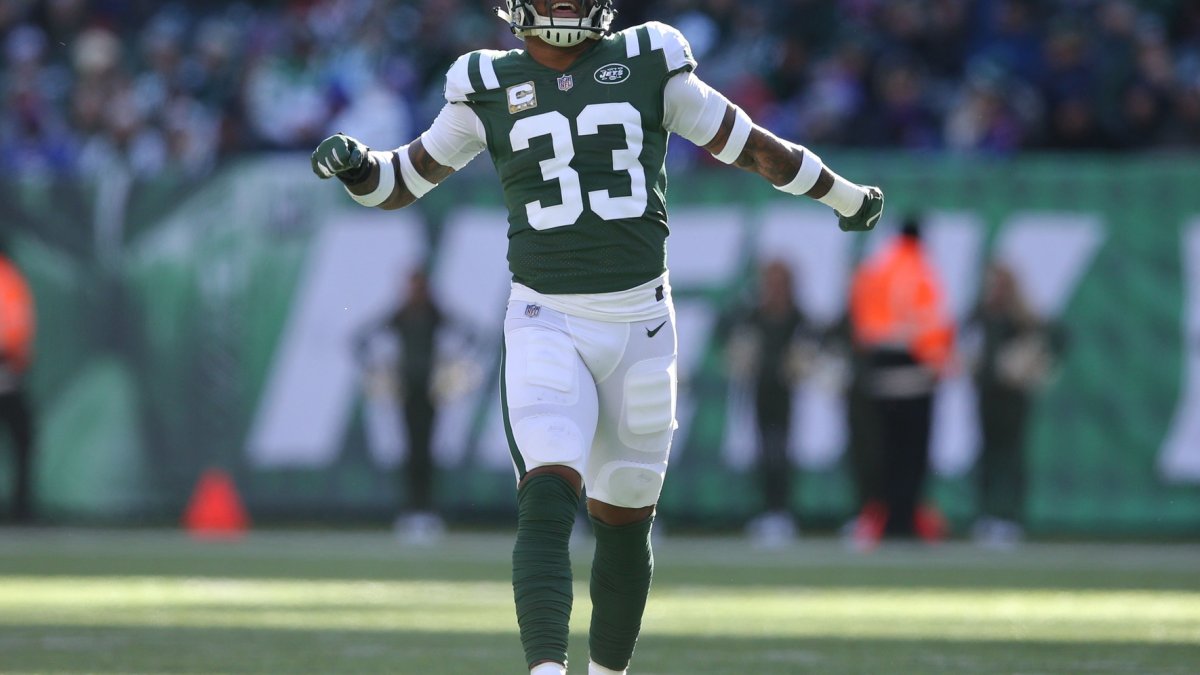First-round rookies are under a microscope the second they step foot on the field for their first career snaps. And after those opening few games or that first season, one of two labels is often assigned: bust or star. It’s unfair by all metrics — just ask New York Jets safety Jamal Adams, who finished his rookie year in 2017 without an interception despite playing the most snaps of any safety. Just a year later, Adams has righted his own ship in coverage, while also adding a surprising a pass-rushing element to his game. He’s no bust — he’s a star.

A season ago, Adams had a 68.5 overall grade (49th) and suffered heavily in coverage, allowing six touchdowns and a 130.2 passer rating when targeted. He also missed 14 tackles as part of a rough introduction to the NFL for Adams, who finished his 2016 season at LSU with the second-highest grade among FBS safeties, 91.1. The second-year safety allowed just one touchdown in college, but rookies have proven time and time again that the norm isn’t to succeed right off the bat. It often takes at least a year before they truly adjust to pro-play — even No. 1 overall picks (see: Jared Goff).
It shouldn’t come as a surprise, then, that Adams has found his footing in Year 2, grading out so far as a top all-around safety. He now leads all defensive backs with 35 stops, which is a tackle that constitutes a “loss” for the offense. He’s been the first to make contact with the ball carrier on 37 run plays this year, which ranks third among safeties and is just four short of his 2017 total. That first contact is coming at an improved average of 1.95 yards past the line of scrimmage compared to 2.2 yards past the line a season ago. For a safety who often lines up closer to the line than most, Adams' run-stopping ability is imperative to the Jets’ success on defense. Most safeties aren’t expected to be heavy influencers in the run game, but for box safeties like Adams, it’s a necessary skillset.
Players who assume similar roles to Adams’, such as New York Giants safety Landon Collins and Arizona Cardinals safety Antoine Bethea, often excel in either the run game or the passing game — rarely both. And that is precisely where Adams has distanced himself from the NFL’s top box safeties while also placing himself among the best overall safeties. Bethea and Collins are strong run defenders who are frequently first to the ball carrier, but each has a passer rating allowed of 100.0 or higher.
Adams finally snagged his first career interception this year and has yet to allow a touchdown in addition to improving his catch rate allowed by slightly more than 15 percentage points. All that has culminated in an impressive 53.6 passer rating allowed in coverage, 10th among safeties. To put it simply, Adams can do it all. He’s the only one at his position to rank in the top-10 in run-stop percentage and passer rating allowed. And even with all that success in the fundamental areas for a safety, Adams is bringing more to the table in an unexpected way: pass-rushing.
Only three safeties have managed to reach 15 pressures in a season over the past five years. Adams sits at 14 through Week 13, only trailing star Los Angeles Chargers rookie Derwin James. His 60 pass-rush snaps are also the most among safeties. The Jets have seemingly discovered his pass-rushing prowess, as he rushed the quarterback on only 62 snaps in three years at LSU, which led to 15 total pressures.
With an 88.3 overall grade, a 76.6 run-defense grade, an 86.5 coverage grade and an 88.2 pass-rush grade, Adams has improved in all areas from a season ago. And he’s developed into more than just a better version of his rookie self — he’s now playing at a level that begs the question: Is Jamal Adams destined to become the best safety in the NFL?



 © 2024 PFF - all rights reserved.
© 2024 PFF - all rights reserved.